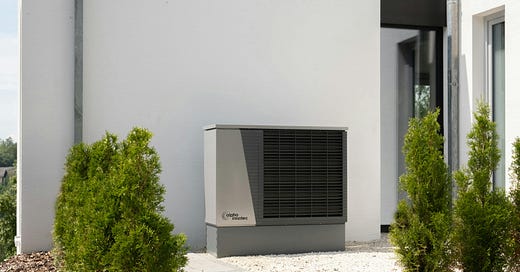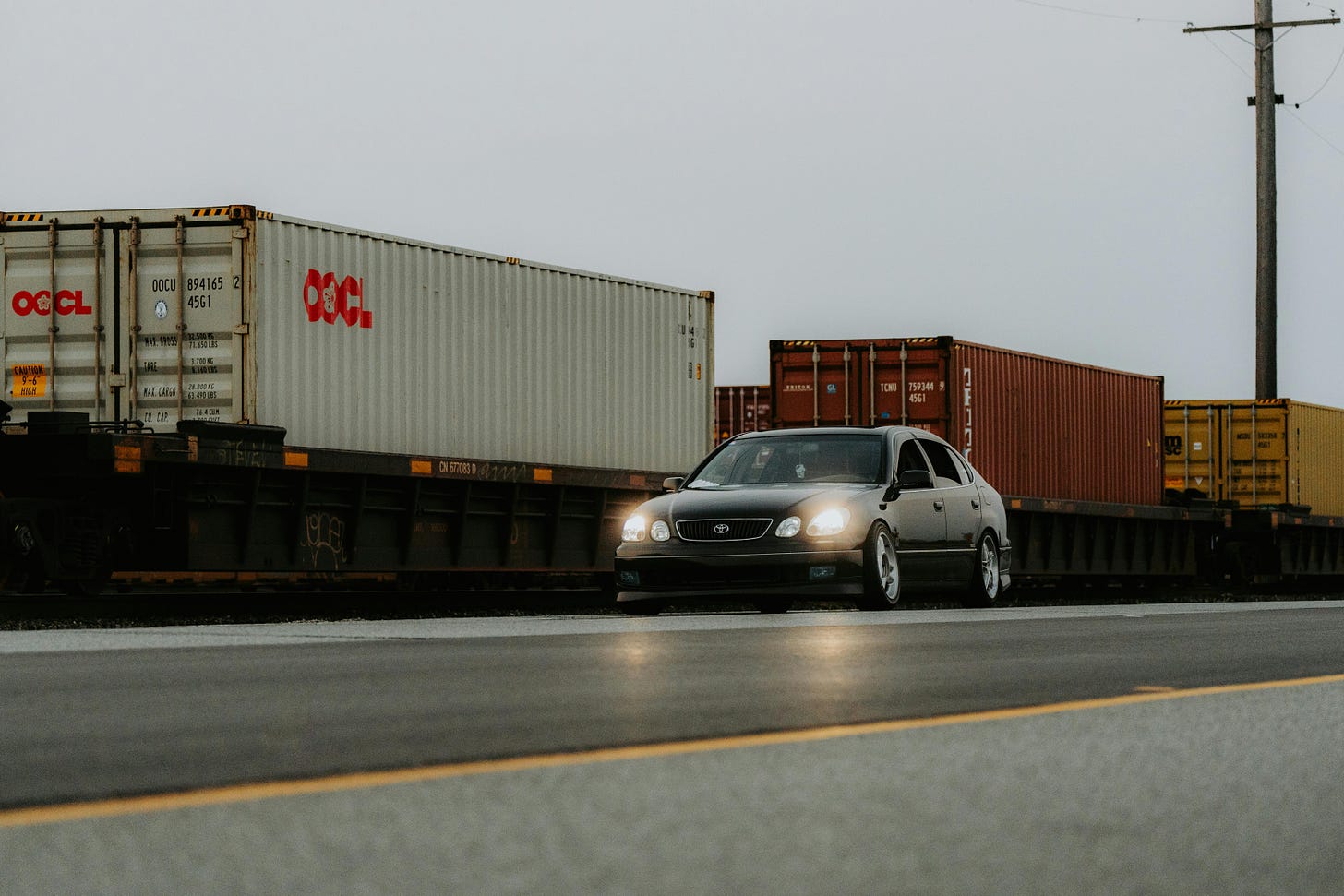Hello! This edition of The Reengineer Monitor is available for free as an introductory offer. From next week, these posts will usually be available to paying subscribers only. If you’d like to sign up, hit the button below and choose a payment plan.
Heating and cooling
As temperatures plummeted in the UK this week, I couldn’t resist asking my followers on Bluesky how their heat pumps were responding in terms of flow temperatures. These settings tend to be automatically controlled but it was fascinating to hear some real-life examples. Some folks say they are staying toasty with radiators well below body temperature - despite the near-zero degrees Celsius conditions outside.
Speaking of heat pumps, a new report has highlighted that more than 120,000 engineers will be needed by 2035 in order for the UK government to meet its ambitious heat pump installation targets.
New research from UK trade body BSRIA suggests that global sales of boilers are down 8% on last year.
And the charity Nesta has published a report describing how remote of controlling heat pumps could help electricity grids manage rising demand from electrification alongside increasing variability of supply from renewables. It’s a concept I’ve covered before for Wired.
A study from Australia finds that it is possible to reduce emissions from water heating appliances by 15% if you do the heating overnight rather than during the day.
Researchers in South Korea are experimenting with a coating that, when applied to windows, could reduce solar gain and help buildings cool passively.
Buildings and infrastructure
You’re probably familiar with the concept of rain gardens - designed to allow heavy rainfall or flooding to seep away quickly. But some people, including researchers in the US, are working on increasingly high-tech methods for designing these gardens with precision.
A legal showdown is afoot in the UK, where The Law Society, a professional association, has encouraged conveyancers - lawyers who facilitate property purchases - to warn their clients about climate risks associated with specific properties. But The Society of Licensed Conveyancers has pushed back, saying their members shouldn’t have to take on such additional liability.
The BBC published an important, in-depth piece about the risk to housing in the Himalayas face. Climate change is melting glaciers, which can send devastating landslides down mountains, destroying homes in an instant.
Perhaps that story is why this paper, from researchers in Italy, caught my eye. It’s about how AI could help track and monitor landslide activity.
Nesta’s Andrew Sissons posted an interesting thread on Bluesky about energy performance certificates (EPCs) for housing in the UK and how they could be improved.
In Germany, poor energy efficiency ratings appear to be having a negative effect on house prices, according to local reports.
Real estate firm Redfin says the value of US homes in low natural disaster risk areas is growing faster than the value of homes in high natural disaster risk areas. The company also said this week that property prices in Florida are slumping in the wake of recent hurricanes and rising insurance costs there.
And in the US state of Maine, concerns grow over the climate readiness of dams and levies there.
Transportation
DP World, which operates the Port of Southampton, says it has cut more than 64,000 lorry trips - and 17,000 tonnes of carbon emissions - by paying logistics firms to send their containers onwards from the port via rail rather than road. DP World pays these firms a small incentive per container, as I explained on Bluesky.
A new trial of electric buses has been proposed for London - and it could involve the use of pantographs to power the trolley bus-style vehicles.
Uptake of EVs in the British construction industry has flatlined, according to a new report. To redress this, the authors make various recommendations, including that builders set up on-site charging at new projects - and then leave it behind as a permanent feature.
Tech
Today’s smartphones incorporate ever more clever gadgets. Temperature sensors, for instance, are becoming more common. Tom’s Guide took Google’s new Pixel 9 Pro for a spin alongside a Flir thermal camera to see how each performed.
Renewables
Another great, climate-focused newsletter, The Progress Playbook, reports that emissions from Australia’s giant electricity grid are falling thanks to the rapid rollout of wind and solar in the country.
The implications for green tech of Donald Trump’s US election win continue to be hotly discussed. This article from New York Focus questions whether the incoming administration will hinder construction of offshore wind farms off New York State’s eastern coast.
As COP29 comes to a close in Baku, The Guardian considers pledges made by countries at COP28 to triple renewables by 2030. Data from clean energy research firm Ember suggests that the pace of rollout has certainly quickened - but signatory nations are still not quite in line to meet that target.
And finally…
River basins in the Amazon have fallen to a record low because of a severe drought. A video report from CNN reveals that this is making it harder to navigate waterways there by boat because of sandbanks. The visible landscape is changing, too. Huge dunes, previously riverbeds, are now left exposed at the water’s edge.






